Peerage
400 Billion dollar from 27 Sovereigns around the world.
CAPACITY. This word, in the law sense, denotes some ability, power, qualification, or competency of persons, natural, or artificial, for the performance of civil acts, depending on their state or condition, as defined or fixed by law; as, the capacity to devise, to bequeath, to grant or convey lands; to take; or to take. and hold lands to make a contract, and the like. 2 Com. Dig. 294; Dane’s Abr. h. t.
2. The constitution requires that the president, senators, and representatives should have attained certain ages; and in the case of the senators and representatives, that out these they have no capacity to serve in these offices.
3. All laws which regulate the capacity of persons to contract, are considered personal laws; such are the laws which relate to minority and majority; to the powers of guardians or parents, or the disabilities of coverture. The law of the domicil generally governs in cases of this kind. Burge. on Sureties, 89
CANDIDATE. One who offers himself or is offered by others for an office.
no fact tried by a jury shall be otherwise reexamined in any court of the United States, than according to the rules of the common law.” U.S. Constitution, 7th Amendment. Only another common law jury can review a decision of a jury. There is no other appeal. Not even the Supreme Court can review a jury’s decision.
MORGANTIC Marriage .6E. The mar·
riage which a prince or nobleman coli·
tracts with a woman of humble birth,
on the express condition that the ordi·
nary civil effects shall not result there-
from, and that the wife and children
shall be contented with certain speeified
advantages. The restrictions re1ate
only to the rank of the parties and
8uccession to property, and do not
affect the natnre or validity of the
matrimonial engagement.
MORT D’ANCESTOR. A real action or
assize available to a demandant who
complained of an “abatement” 00 or
entry upon his freehold, effected by a
stranger’ on the death of the deman·
dant’s father or mother, brother or
sister, uncle or aunt, nephew or niece.
Abolished in 1833 by stat. 3 &; 4 WilU,
c. 27, s. 36. S Steplt. CofIt. [ABATE-
MENT,5 j AssIZE, WRIT OF.]
MORTGAGE (Lat. MOrW,um ~adium, ,i.e.,
dead pledge) is a conveyance, assIgn·
ment, or demise of real or personal
estate as security for the repayment of
money borrowed. 1 Step”‘. OIlH.;
WfltB. R.P.
If the conveyance, assignment, .or
demise be of land or any estate thereIn,
the transaction is ciilled a mortgage,
notwithstanding that the credioor
enters into possession j but the transfer
of the possession of a moveable chattel
to secure the repayment of a debt is
called not a 11Im1gagtJ, but a pledge.
[GAGE j PLEDGE j VIVUM V:ADI~.]
Mortgages are either (a) legal, lDeludmg
statutory, or (b) equitable:. .
The term’ “mortgage” IS applied
indifferently: (1) to the mortgage
transaction; (2) to the mortgage deed i
and (3) to the rights conferred thereby
on the mortgagee.

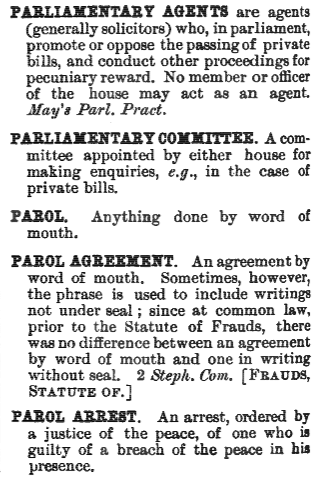
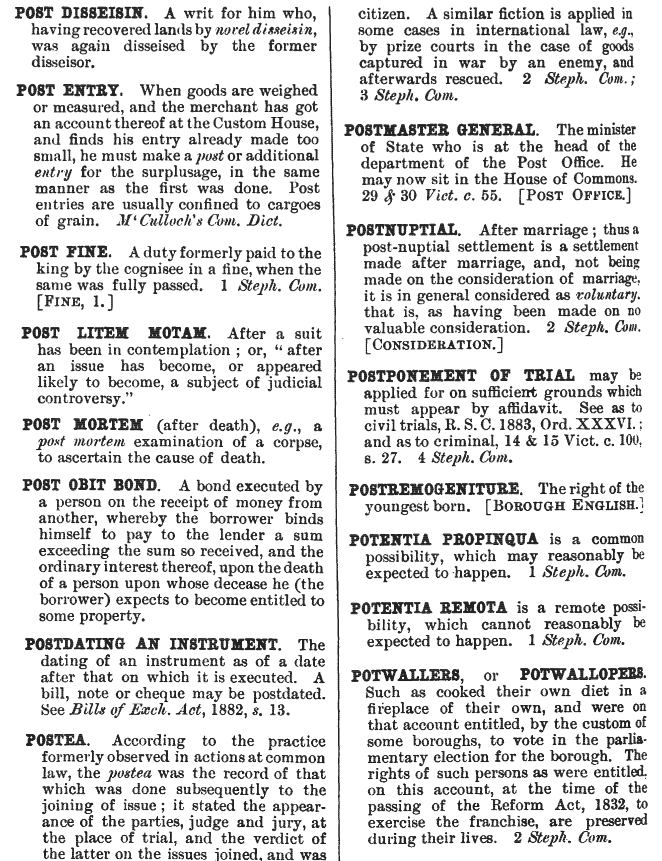
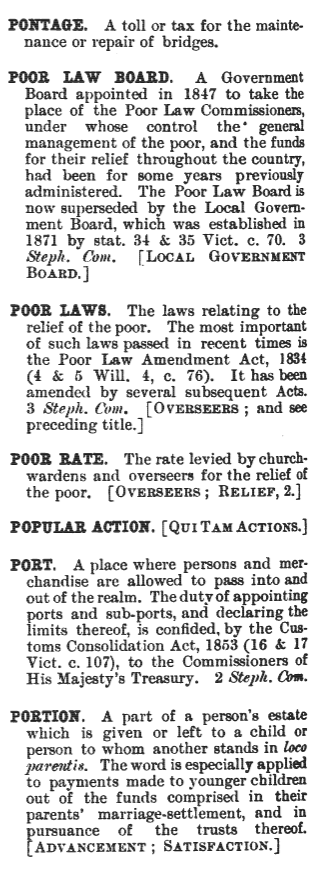
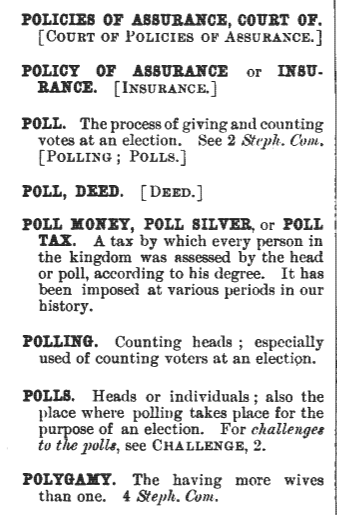
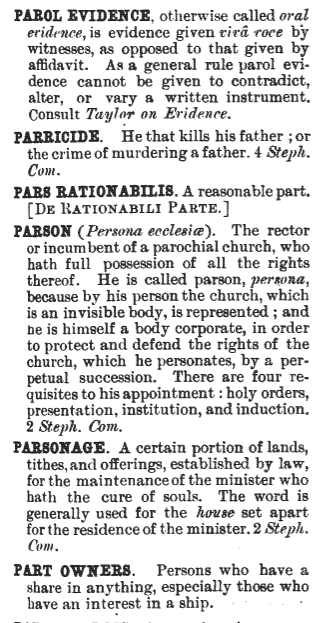

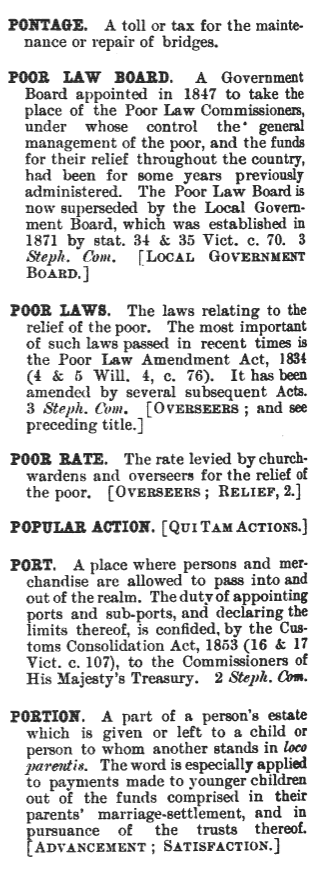








I. SOVEREIGNTY
king, queen
prince, princess
II. SUBJECTS
A. ECCLESIASTICAL (CLERGY)
B. STATES
1. MILITARY
General: originally meant to be of similar 'birth' or 'class' with the sovereign;
the more recent use is to be familiar with all facets of the army, no longer
a specialist in one area, a 'general officer'.
Colonel: an officer commanding a 'column' of soldiers and support trains.
Captain: an officer entrusted with a command or fort under a sovereign or general.
Lieutenant: an officer representing and exercising powers on behalf of his lord or
sovereign.
Sergeant: servant; attendant upon a knight in the field.
Corporal: influenced by 'corps'; head, chief.
Private: having attained no title of rank, a 'private soldier'.
2. MARITIME
3. CIVIL
a. Nobility (peerage, sometimes called "high nobility")
i. Duke
ii. Marquis
iii. Earl, Count
iv. Viscount
v. Baron
lord or nobleman; the most general title of nobility in England
judge of the court of exchequer
vassel holding directly from the king
b. Dignity (degrees of honor, sometimes called "low nobility" though not nobility)
Knights Baneret, created by sovereign in person on field of battle
Can lead vassels into battle under his own banner.
Knight (not hereditary), a soldier, assistant to a superior
commonly in return for land, "sir", a mounted man of arms serving a superior
Knights of the Garter, aka Knights of the Order of St. George
Baronet, granted by patent, lowest hereditary dignity or degree
of honor but not a title of nobility, baronets are commoners
Knights Baneret, created by sovereign NOT in person on field of battle
can lead vassels into battle under his own banner.
Knights of the Bath (took a bath the night before his creation)
The order originally consisted of the sovereign, grand master,
and 36 knights companion
Knights Bachelors (the lowest, but most ancient of the ranks of knight)
Knights of the Chamber (title awarded in sovereign's chamber in peacetime)
Esquire
title of office for sheriffs, serjeants, barristers at law, justices,
and others
Gentleman
One without title, but with a coat of arms showing ancestry
A person of superior birth, above a yeoman.
Yeoman
yeoman, freeholder, a man freeborn, butler for nobility,
gentleman attendant in royal household, "young man"
c. Peasant
serf, countryman, tiller of the soil, laborer
Other terms
NOBILITY, depends on context. If no discernable context or a legal context, then
"nobility" only refers to duke, marquis, earl, viscount, and baron. In a non-legal
context lower ranks are sometimes called low nobility while the upper ranks are
called high nobility. Sometimes "nobility" includes both high and low nobility.
SQUIRE short for esquire
GENTRY of noble birth
GENTLEMAN can refer to all of the nobility.
Its meaning depends on the context in which it is used.
PEER
A nobleman; as a peer of the realm; the House of Peers, so
called because noblemen and barons were originally
considered as the companions of the king
In England, persons belonging to the five degrees of
nobility are all peers [members of the peerage].
CITIZEN
1. The native of a city, or an inhabitant who enjoys the freedom
and privileges of the city in which he resides; the freeman
of a city, as distinguished from a foreigner, or one not
entitled to its franchises.
2. A townsman; a man of trade; not a gentleman.
3. An inhabitant; a dweller in any city, town or place.
4. In a general sense, a native or permanent resident in a city
or country; as the citizens of the United States.
5. In the United States, a person, native or naturalized, who has
the privilege of exercising the elective franchise, or the
qualifications which enable him to vote for rulers, and to
purchase and hold real estate. If the citizens of the United
States should not be free and happy, the fault will be
entirely their own. Washington